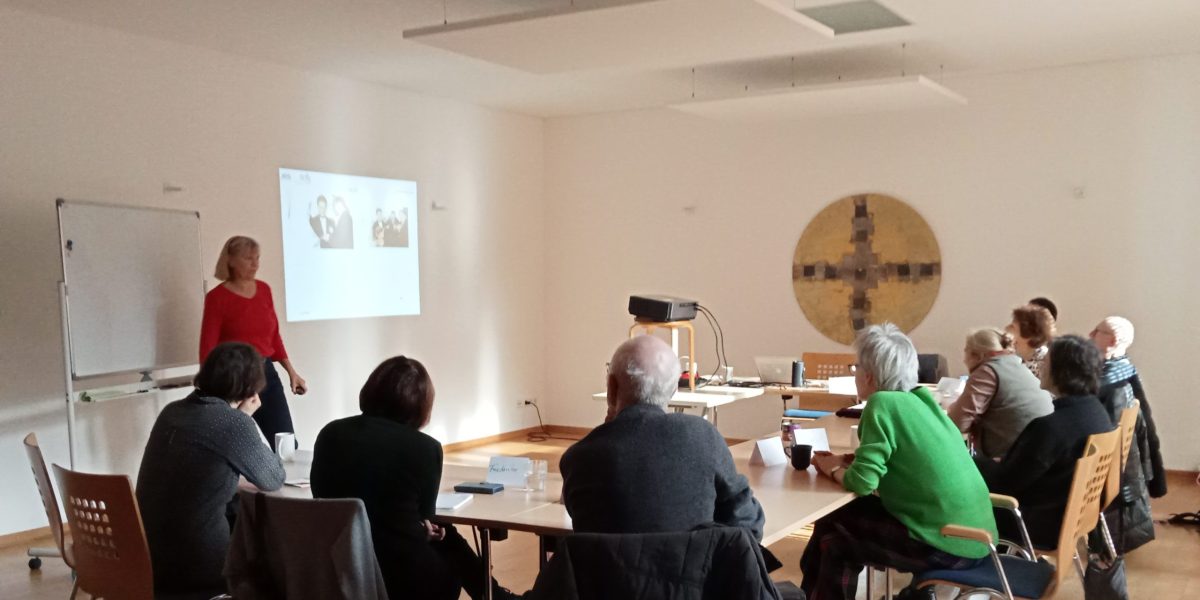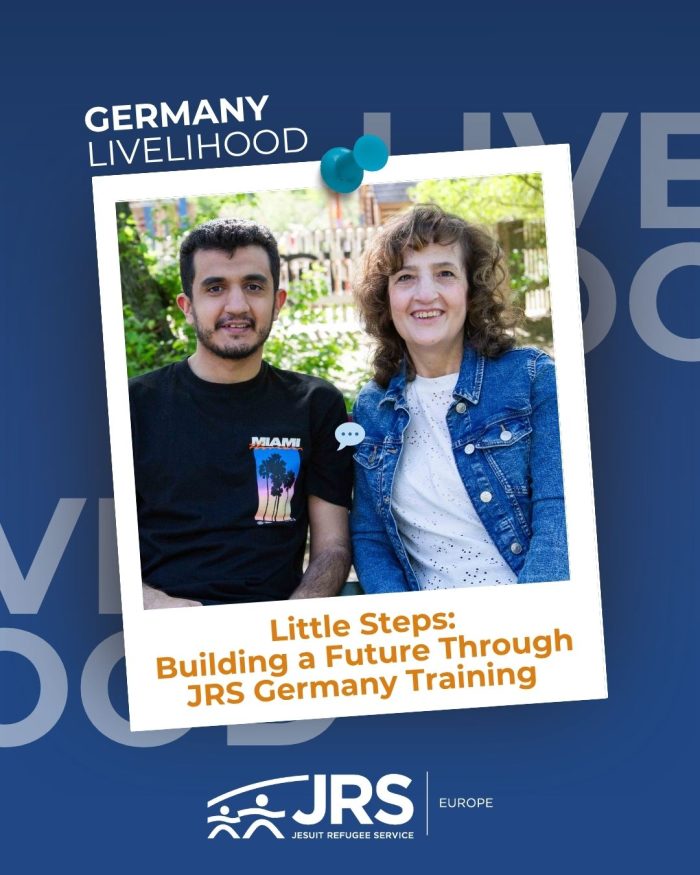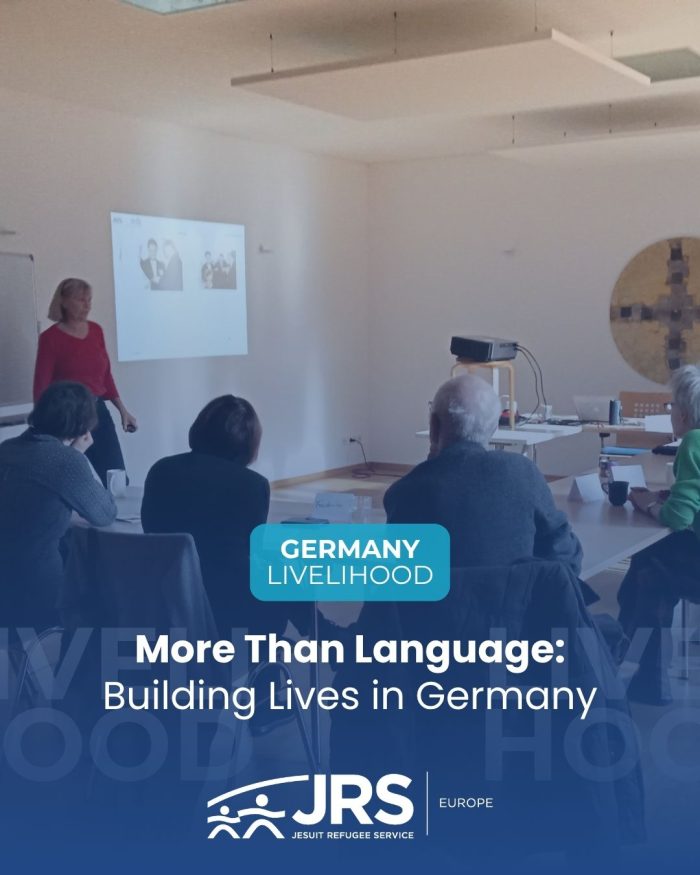Integrating Through Language and Guidance: JRS Germany Supports Refugees on the Path to Employment
24 November 2025

Integrating Through Language and Guidance: JRS Germany Supports Refugees on the Path to Employment
In the heart of Berlin, JRS Germany is helping refugees and asylum seekers lay the foundation for a new life through practical, personalized support. As part of the Livelihoods Project, backed by the Linsi Foundation, JRS Germany focuses on building the language skills, soft competencies, and administrative literacy essential for entering the German labor market. The project is part of a wider European effort across eight countries to promote sustainable integration and economic participation among forcibly displaced people.
The road to employment in Germany is complex. Language proficiency, legal status, and unrecognized qualifications are just a few of the obstacles that can slow or block progress. JRS Germany addresses these through a holistic approach: German language classes, job application support, document assistance, and one-to-one counseling that tailors guidance to each participant’s background and aspirations.
In collaboration with local partners such as Arrivo Berlin and La Red e.V., JRS helps participants explore professional opportunities, assess skill gaps, and pursue credential recognition. Arrivo offers career orientation and goal-setting, while La Red ensures foreign diplomas and past work experience are acknowledged. Together, they create a coordinated support system that brings displaced individuals closer to employment that matches their potential.
Participants, ranging in age from 25 to 40 and originally from countries such as Syria, Iran, Ethiopia, and Ukraine, arrive with varied educational histories—from primary school to university degrees. Some bring digital or transport-related skills, while others need basic literacy or vocational training. Most are new to Germany, having arrived in the past three years, and many carry the burden of interrupted education, precarious legal statuses, and underemployment.
Despite these challenges, many beneficiaries have successfully transitioned into apprenticeships, training programs, or part-time jobs, citing improved German skills, self-confidence, and supportive relationships as key outcomes of the JRS program. However, bureaucratic delays and a lack of formal employer partnerships still hinder consistent job placement, especially in skilled sectors.

A Story of Strength: Mena’s Journey
Mena, a young man from Syria, spent years moving between Jordan, Syria, and Egypt in search of safety. When his father’s health deteriorated, the family fled to Germany seeking urgent care. After navigating a complex asylum process, Mena was granted a tolerated stay to pursue training. Today, he is on his way to becoming a care assistant, a role that not only provides stability but contributes meaningfully to his host society.
This transformation was made possible with the help of JRS Germany, which offered legal guidance, counseling, and daily life assistance. “JRS helped me understand what steps I needed to take,” Mena shares. “Without their support, I wouldn’t have been able to start training or plan for a better future.”
JRS Germany’s person-centered model provides more than just employment support—it restores dignity, purpose, and direction for those rebuilding their lives. As the organization continues to adapt and expand, increased investment in vocational pathways, credential recognition, and long-term employer engagement will be essential to unlocking the full potential of refugees in Germany’s workforce. Read more about the Livelihood project here: https://jrseurope.org/wp-content/uploads/sites/19/2025/06/LIVELIHOOD-REPORT-2025-2.pdf.

